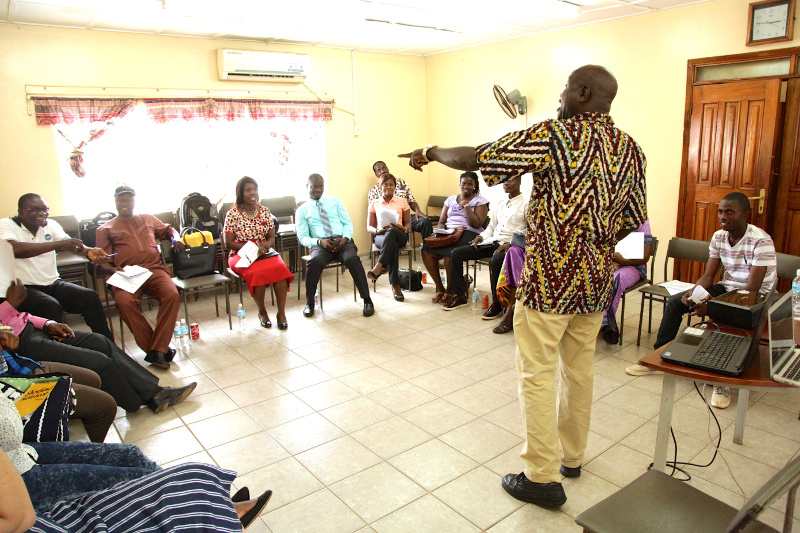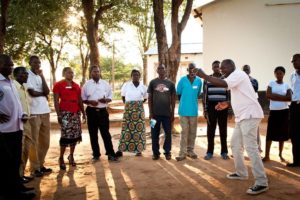
Three Guidelines to Choosing Words Well
By Jake Lloyd, Communications Co-ordinator at Arukah Network.
In one episode of Aaron Sorkin’s iconic TV drama The West Wing, news reaches the White House that a herd of cattle in Nebraska might have Mad Cow Disease. For a nation built on cattle ranching, and fuelled by burgers, this spells a potential crisis. And so the West Wing communications team gathers hurriedly to decide what to say to the public, and when to say it.
Should they wait 72 hours for the test results to come in, risking public panic if rumours start to spread? Or should they tell all right away, risking a fuss over nothing if tests are negative? The Press Secretary CJ Craig argues for the latter, on the basis that “people need to feel like soldiers not victims [and] information breeds confidence – silence breeds fear”.
In the end, we don’t learn what option they choose. Nor how the crisis resolves. But that’s not really the point. The point (to me anyhow) is that the show’s writer loves words, and he wants us all to know why: words and stories have the power to transform us. Used well, they can turn fear into confidence, victim into soldier, and (if we believe those who say The West Wing paved the way for the USA’s first black President) they can even turn fiction into reality.
 I am a Communications Co-ordinator at Arukah Network – a network of people in Africa, Asia and beyond, all working to nurture health and wellbeing in our communities. To do this, we want to move beyond a history of well-intended organisations naming a community’s problems, and then getting outsiders to try and solve them. Many of us have seen this define local people as incapable, diminish their prior achievements, and discourage their future initiative.
I am a Communications Co-ordinator at Arukah Network – a network of people in Africa, Asia and beyond, all working to nurture health and wellbeing in our communities. To do this, we want to move beyond a history of well-intended organisations naming a community’s problems, and then getting outsiders to try and solve them. Many of us have seen this define local people as incapable, diminish their prior achievements, and discourage their future initiative.
Thankfully, this reality seems to be changing. In our podcast How To Build Community, we’ve interviewed people all over the world who are generating community-led change of all kinds. And the more of these stories I hear, the more my conviction grows that CJ Craig in The West Wing was right: well chosen words and stories can transform people. In an effort to choose words well at Arukah Network, we try and follow three rules – each borrowed from a writer with a much greater command of language than I.
1. “There is no them, there’s only us”. – U2
U2’s singer Bono articulates a basic idea behind humanitarianism here: that all humans are equal, and should be treated as such. Paradoxically, as charities and agencies seek to make this a reality, they have often adopted ‘us and them’ vocabulary, in the form of ‘donor and beneficiary’ or ‘have and have-not’. But we want our words to say that everyone has something to contribute in order to make a community strong. These contributions will primarily come from local people themselves, but there is also sometimes a role for outsiders to play, as donors, cheerleaders and trainers for example. And so there really is no ‘them’, there’s only ‘us’, and we should avoid the words, phrases and practices that suggest otherwise.
2. “Everything should be as simple as it can be, but no simpler”. – Albert Einstein
Community work can be slow, messy and complex. But with a diverse audience – most of whom are not schooled in “development” jargon, and for whom English is a second language – it is necessary to seek accessible turns of phrase, stories or ideas when talking about this work. Simplifying enables us to spread helpful insight and wisdom far through our network. But doing so can be a double-edged sword: done well, we can get to the nub of the matter; done badly, we can misrepresent a complex reality. Einstein’s quote is a prompt to tread this line with care.
3. “Vulnerability is the birthplace of innovation, creativity, and change.” – Brene Brown.
In her TED talk, the researcher and storyteller Brene Brown argues that when as humans we are vulnerable with one other – that is when we are honest about our failings and fears – then we become more able to have good relationships and to enjoy richer lives. In a sense, we become more fully human. But if this is true of people, might it is also be true of organisations? Can an organisation fulfil its purpose more fully if it’s open and honest about its failure, fears and mistakes? We think the answer is yes, and we try to cultivate vulnerability in three ways. Firstly, we try to be humble in our words: “show don’t tell” is a good rule, meaning that if we do good work, we shouldn’t have to tell people, our stories should be able to show it, and people can make up their own mind. Secondly, we invite dialogue: we have lots to learn, and we can do so by listening and engaging with others. Thirdly, we ought to embrace stories of failure, mistakes and hardship, as it is in these stories that valuable lessons can be learned and shared. With these three things, perhaps we can cultivate the kind of vulnerability that births creativity, innovation and change.
Jake Lloyd

Euan Macleod
There is no them only us , how true, particularly in these current times. Great blog and food for thought
Thank you